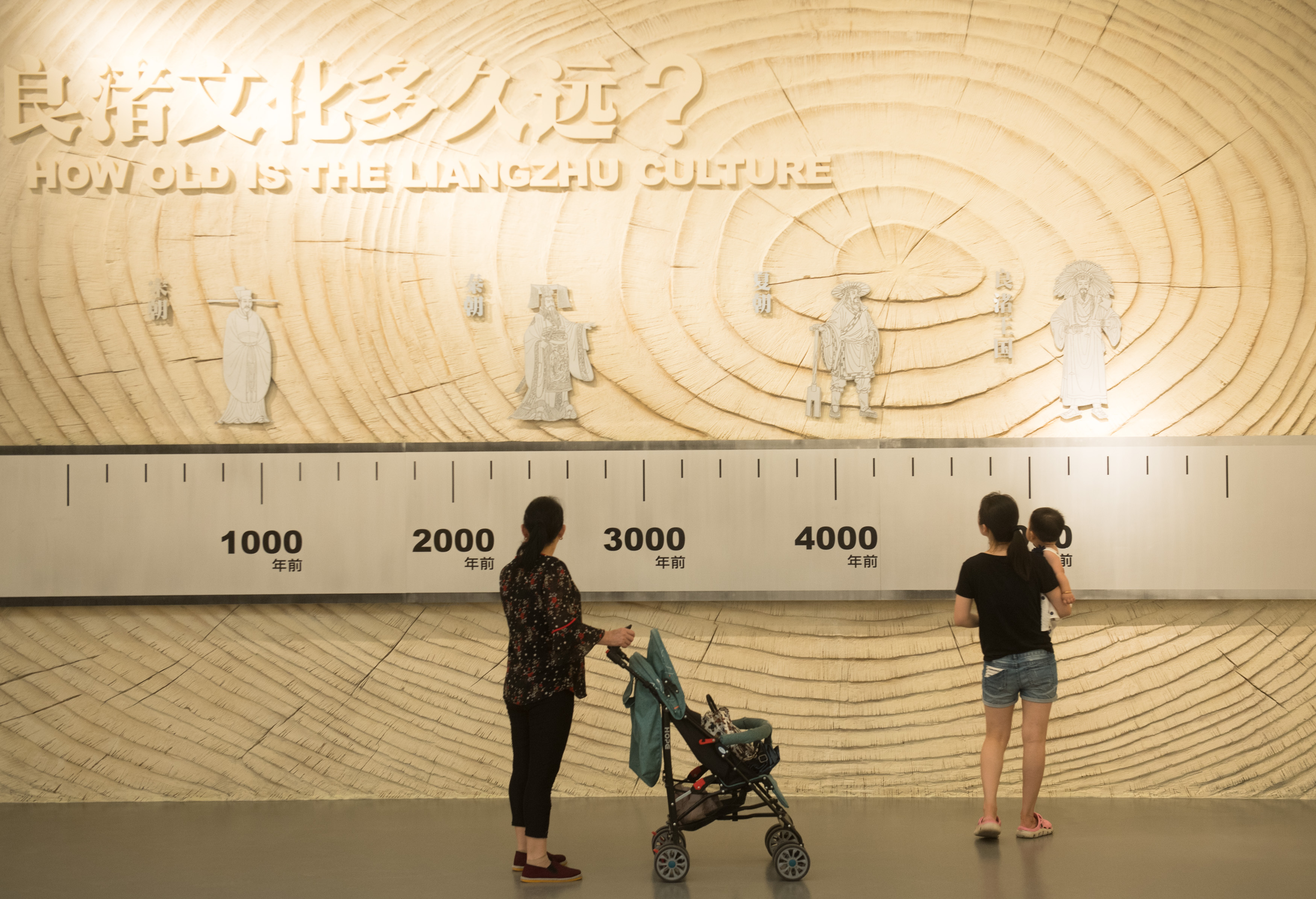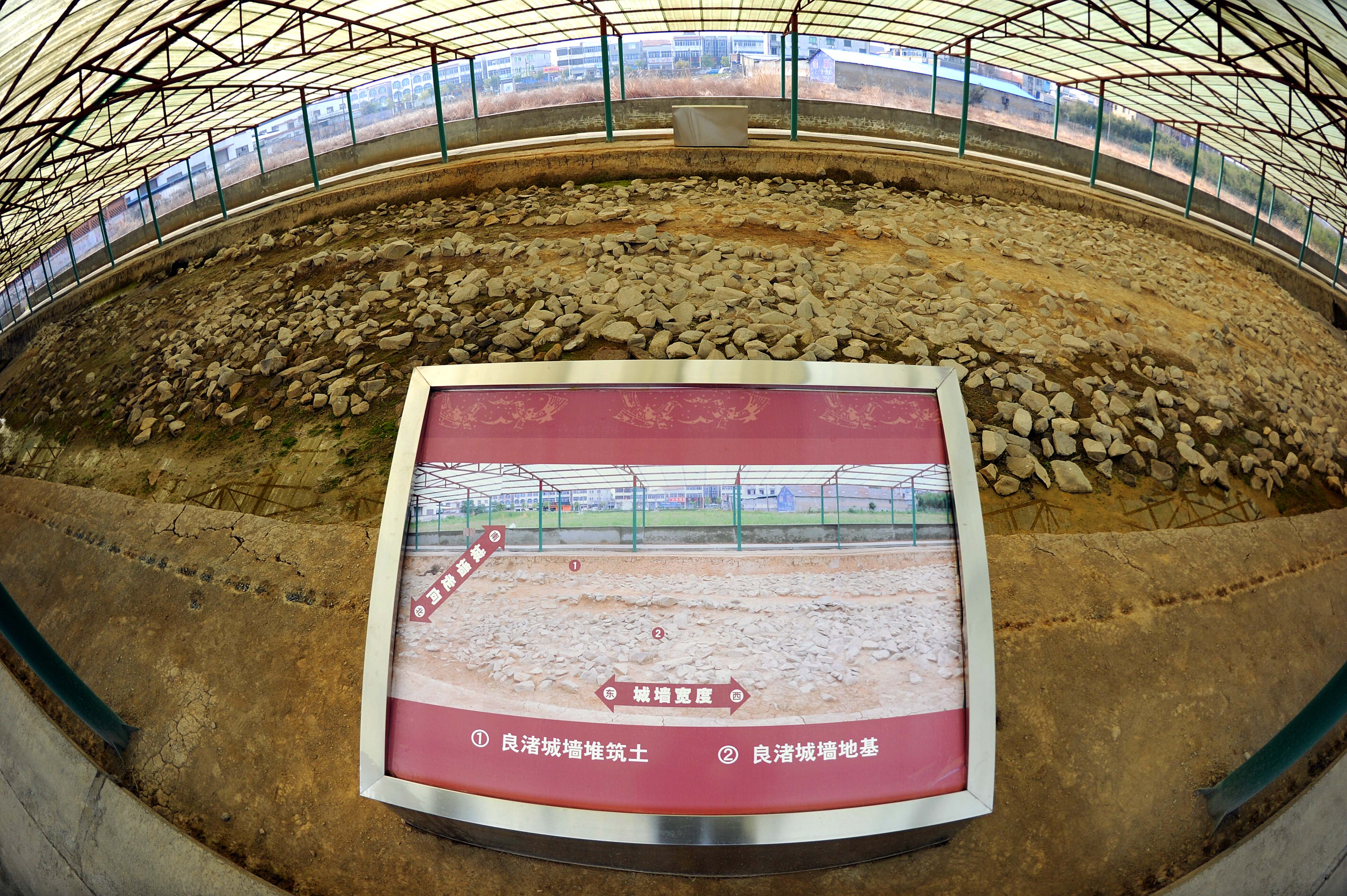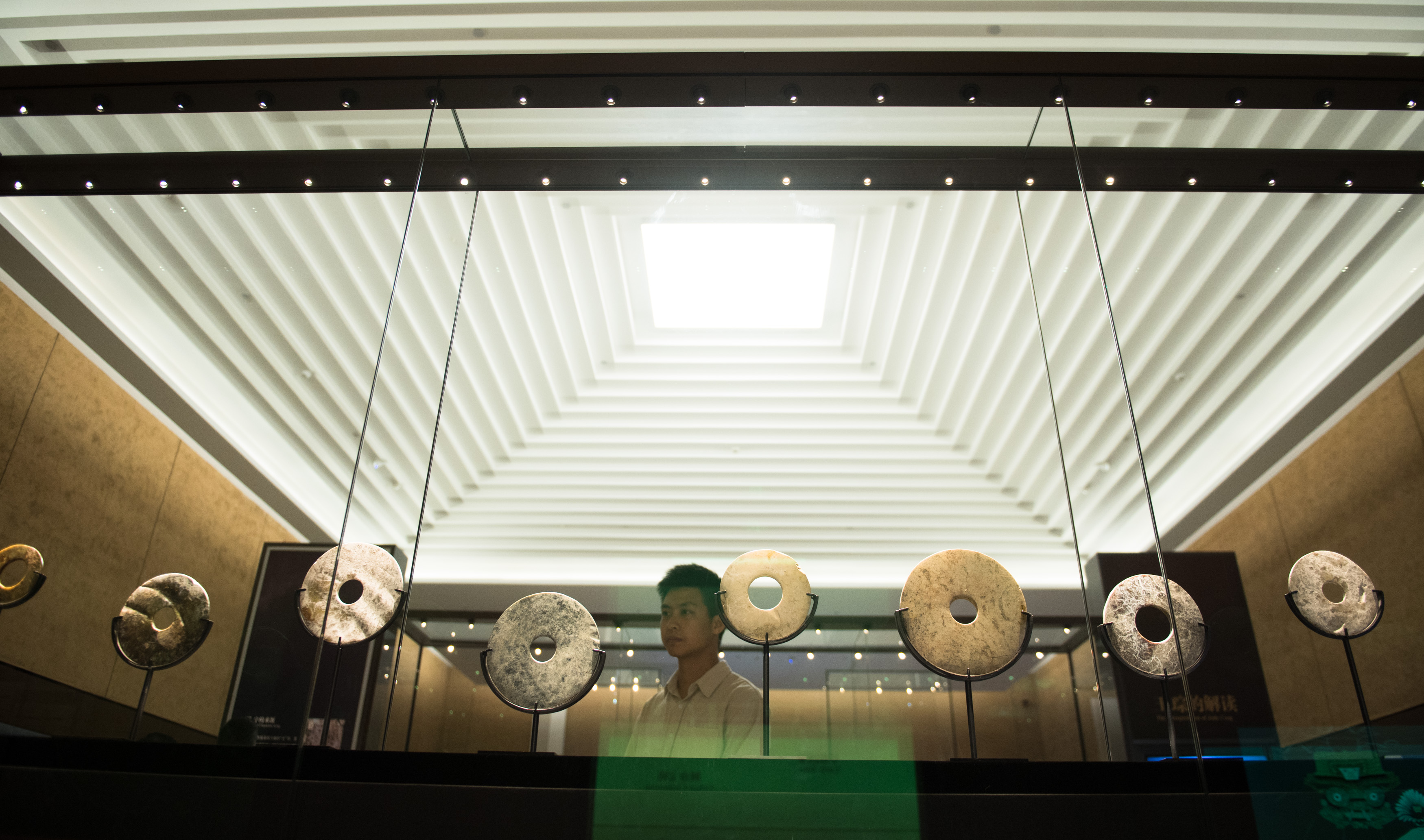BEIJING, July 6 (Xinhua) -- China's Archaeological Ruins of Liangzhu City was on Saturday inscribed to the UNESCO World Heritage List as a cultural site, bringing the total number of the Asian country's sites on the list to 55.

People visit the Liangzhu Museum in Hangzhou. (Xinhua/Weng Xinyang)
The decision to add the Chinese cultural site, located in the eastern Chinese city of Hangzhou, to the United Nations Educational, Scientific and Cultural Organization's (UNESCO) World Heritage List was approved by the World Heritage Committee at its ongoing 43rd session in the Azerbaijani capital of Baku.

Archaeologists work on stones retrieved from the Liangzhu relic site in Hangzhou. (Xinhua)
"It is considered to be a supreme achievement of prehistoric rice-cultivating civilization of China and East Asia over 5,000 years ago and an outstanding example of early urban civilization," said a report by the International Council on Monuments and Sites (ICOMOS), the committee's official advisory body.

Combo photo shows artifacts excavated from the Liangzhu relic site in Hangzhou. (Xinhua/Weng Xinyang)
Sitting on a plain crossed by river networks in the Yangtze River Basin, the nominated property of Archaeological Ruins of Liangzhu City includes the archaeological remains of Liangzhu City (3300 BC-2300 BC), which was once the center of power and belief of an early regional state in the lower reaches of the Yangtze River during the Late Neolithic China period.

The remains of city walls on display at the Liangzhu relic site in Hangzhou. (Xinhua/Xu Yu)
The property testifies to the existence of a regional state with a unified belief system and supported by a rice-cultivating agriculture in late Neolithic China. It also represents an early urban civilization with complex functions and structures.

Aerial photo shows the Liangzhu relic site in Hangzhou. (Xinhua/Huang Zongzhi)
"Archaeological Ruins of Liangzhu City is a major archaeological discovery of China in the 20th century and an important cultural site that witnessed the 5,000-year civilization of the country," said Liu Yuzhu, head of China's National Cultural Heritage Administration, at the committee session.
"We are proud that after 25 years of preparation, our efforts have finally led to the successful inscription of this exceptionally important property, which is the most concrete testimony of 5,000 years of Chinese civilization," said Shen Yang, ambassador and permanent delegate of China to the UNESCO, following the announcement of the decision.

A view of the Liangzhu relic site in Hangzhou. (Xinhua/Xu Yu)
"We are keenly aware that the inscription also entails an enormous responsibility for conserving this heritage of humanity," he added.
Zhou Jiangyong, Hangzhou's municipal committee secretary of the Communist Party of China, said the Chinese city will spare no effort to "protect and make proper use of the enormous cultural heritage before passing it on to the the future generations."

A man looks at jade artifacts excavated from Liangzhu relic site in Hangzhou. (Xinhua/Weng Xinyang)
The Chinese side also pledged continued efforts and strengthened international cooperation in the protection and management of the world heritages in China.
The 43rd convention of the World Heritage Committee, held from June 30 to July 10, started on Friday to examine world heritage nominations. According to its agenda, it will also review the state of conservation of 166 sites on the World Heritage List, 54 of which are also on the List of World Heritage in Danger.

A visitor enters the Liangzhu Museum in Hangzhou. (Xinhua/Weng Xinyang)
On Friday, China's Migratory Bird Sanctuaries along the Coast of the Yellow Sea-Bohai Gulf (Phase I) was inscribed to the World Heritage List as a natural site.
At present, China has 55 world heritage sites, including 37 cultural sites, 14 natural sites, and 4 cultural and natural heritages.



